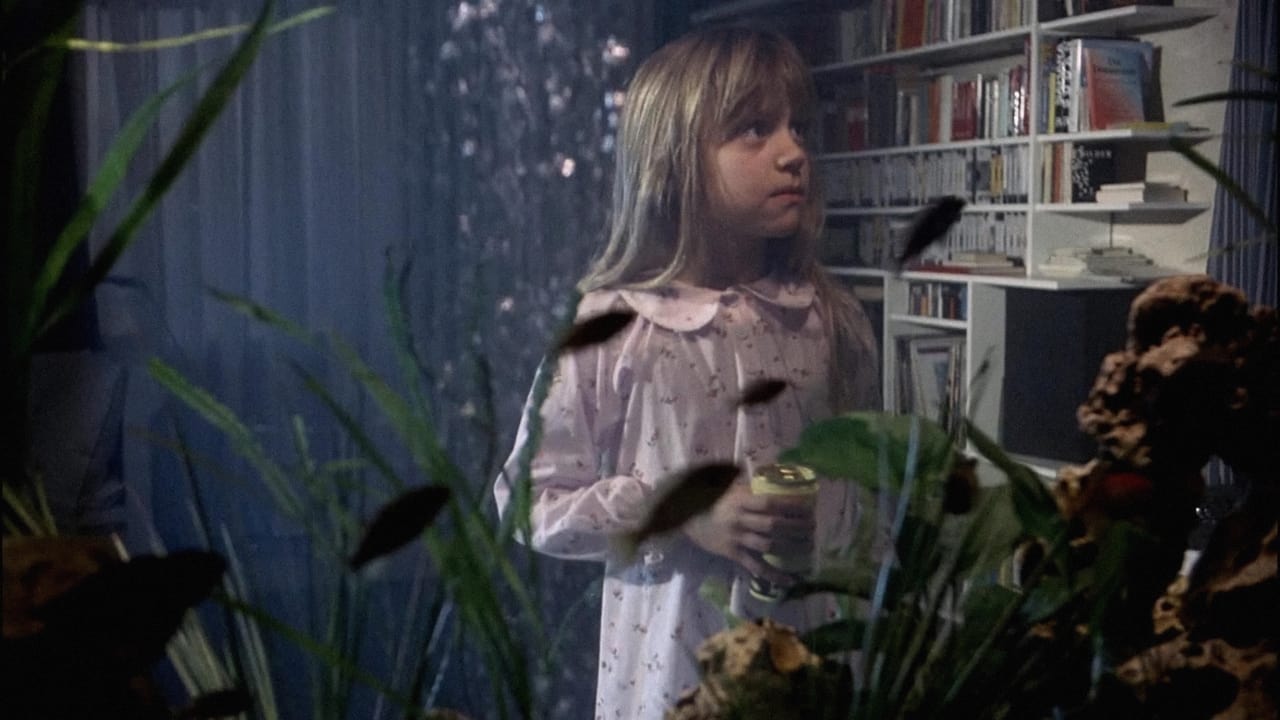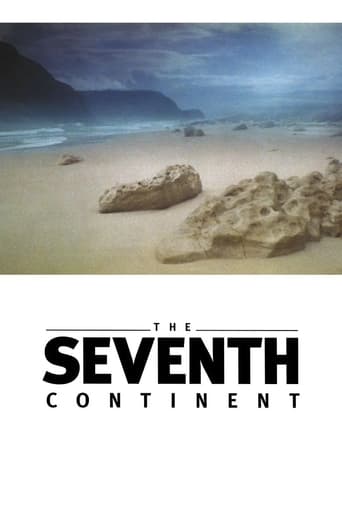



I like the storyline of this show,it attract me so much
View MoreWhile it doesn't offer any answers, it both thrills and makes you think.
View MoreAll of these films share one commonality, that being a kind of emotional center that humanizes a cast of monsters.
View MoreAmazing worth wacthing. So good. Biased but well made with many good points.
View MoreI saw this one last night and was extremely disturbed. This has got to be one of the most depressing films ever made.It's slow to start off with, but I was never bored, however perhaps this is down to me being a huge fan of Michael Haneke and knowing the outcome (which I stupidly read by mistake).I felt immersed in the mundane and bleak lives of the family and by the second half I was completely hooked. The film is incredibly cold, distant and unsentimental which makes the tragic second half even more painful to watch. There are some extremely powerful and disturbing images which almost made me cry (something I hardly ever do in a film.) This is powerful, heart-breaking cinema which is magnificently directed and acted. Chills shot up my spine at the end and I went to bed feeling shaken and appalled. Don't touch this film if you're a manic depressive, but please do touch it if you like powerful, brave and disturbing film-making.
View MoreSeriously, this movie is so boring! *spoiler coming you'll regret you never read*The story of the movie is: couple with a daughter, bored of their meaningless everyday lives decided to suicide but first sells all their assets, flushes their money and destroy their belongings. Thats it!!!! Seriously, thats it, you'll thank me for not letting you see this booooooring 2 hours long movie where nothing happens!!Endless meaningless scenes like brushing teeth, eating cereal. Static scenes also, no camera movement for the entire movie. I begged for something good to happen but no...
View MoreThe seventh continent at the centre of this bleak tale of suburban dysfunction is as vague and enigmatic as the film itself. Are we supposed to believe that the geographical state noted in the title is the rugged, ethereal landscape glimpsed fleetingly throughout key moments of the film, or is it in fact a much higher state of being that can only truly be achieved by purging yourself of the trappings of twentieth century life? The need for transcendence is central throughout The Seventh Continent (1989), the first feature film from Austrian provocateur Michael Haneke, who has subsequently gone on to re-examine this very same theme in his following films - 71 Fragments of a Chronology of Chance (1994), The Piano Teacher (2001) and Hidden (2005) - by continually probing the very boundaries of human nature and the personal and/or social factors that can drive an individual to the point of complete, psychological transcendence. If you are at all familiar with Haneke's work you will be partially aware of what to expect from the film in question, with The Seventh Continent presenting us with a deep, hypnotic and highly clinical examination of the break-down in communication between members of a middle-class Austrian family, and the desire they have to transcend the drab, soulless grind of their everyday existence and arrive at that mythical place so central to the title.Even here, with his first film for cinema, Haneke's iconic style and attention to detail is fully-formed, with the same stylistic flourishes found in his recent film, the highly acclaimed Hidden, already presented in the stark, antiseptic presentation of the world created here. The direction of the film is intended to present to us the emptiness and tedium central to the lives of its characters, by giving us scenes that play out in long, unbroken takes lasting anywhere between five to ten minutes, with the camera often locked off and immobile in order to further emphasise the idea of clinical examination. In this respect, the film is less about telling a story and presenting emotions in a manner that we might expect from cinema, but instead feeling more like a science experiment, with Haneke as the biology professor inviting us to take a look through the lens of the microscope. In keeping with this idea, the way in which the drama unfolds and is presented is again drawing heavily on the director's desire to create a mood for the audience that in some way mirrors that of the characters depicted on screen. So, the slow pace, deliberately minimal use of editing and the constant repetition of scenes, actions and events all help to create that same sense of tedium and lifeless banality in order to create a reaction or even a sense of empathy from those of us watching this very ordinary family spiral so terribly out of control.These themes are further reinforced with the film's near iconic opening shot; a locked off, low-angle perspective of a family saloon moving slowly through a service station car wash. The shot, presented in real-time, lasts somewhere between five or six minutes, but on our first exposure to the film, feels much, much longer. Although it will undoubtedly infuriate some, it establishes the style and pace of the film perfectly; whilst also creating something of an atmosphere of empty, soulless routine. Why wash the car when it will only get dirty again? Later in the film the shot will be repeated within context to further illustrate this point. From here we cut to a montage of cold, clinically arranged images of domestic cleansing; toilets, shower-heads, sinks, plug-holes, toothbrushes, etc. It's almost ten minutes before we even see a character's face or find any kind of meaningful exchange of dialog, with Haneke instead presenting the ideas of routine, conformity, cleansing and facade. The notion of cleansing, both literally in this instance, and spiritually as the film progresses, is an important theme, with the family effectively cleansing themselves from society; stripping away every layer of the superficial and eventually taking the final leap of faith into the unknown.Even here, as the family take their house apart piece by piece and destroy their belongings in order to free themselves from the shackles of routine and social responsibility, we have the action presented as a series of hypnotic, gruelling and repetitive montages that stress the weight of effort required to even escape the horrors of the mundane. Admittedly, I could be reading this the wrong way, but to me the implication is clear; that the family - for one reason or another - have simply ceased to exist. Even before the film begins they have been consumed by life and are now numbed to its pleasures, no matter how few and far between. As a result, many will find these characters hard to like and even harder to empathise with, particularly in the selfishness regarding their child. In one of the most moving scenes, Haneke drops his guard, and for the first time allows his polemic to be overtaken by emotion; as the family sit motionless on the couch, the television set flickering in the dark, with Jennifer Rush singing her anthemic hit The Power of Love as their house lies in ruins, the little girl drinks her milk and softly proclaims "its bitter!". The Seventh Continent is not as easy film to watch; nor to appreciate on any immediate, emotional level. Like much of Haneke's work it requires an enormous amount of thought and effort on the part of the audience to really think about and deconstruct what it is that he is attempting to convey, and only then are we able to truly understand and appreciate what the film is really about.
View MoreI put a question mark after spoiler alert because the fact that they off themselves in the end wasn't particularly shocking. I am quite shocked with the positive reviews this film received. I did not find it particularly disturbing or all that depressing, what I mostly found it was boring. There was no real character development, nor narrative development. I think their suicide speaks to inner torment of people who are equally sad and bored in their life, sadly I'm relatively happy, so I means little to me. The acting performances did not solicit any emotion from me, which I don't think is the fault of the actors, but I think it is what the director asked for in the piece. It was very absurd, but there is humor at the heart of absurdity, not torment. Why,simply because absurdity lacks the ability to solicit emotions from others in a vacuum of characters. when someone crushes a milk carton you don't grieve the milk carton unless you can anthropomorphize (msp) it in some way and these characters weren't; they were empty. There was no conflict. the sole redeeming quality I enjoyed about the film is the way it removed the veneer of eroticism and beauty from violence, and made it trite, which it is. This movie, however, stands far below Cache and Code Unknown in the haneke repertoire.
View More